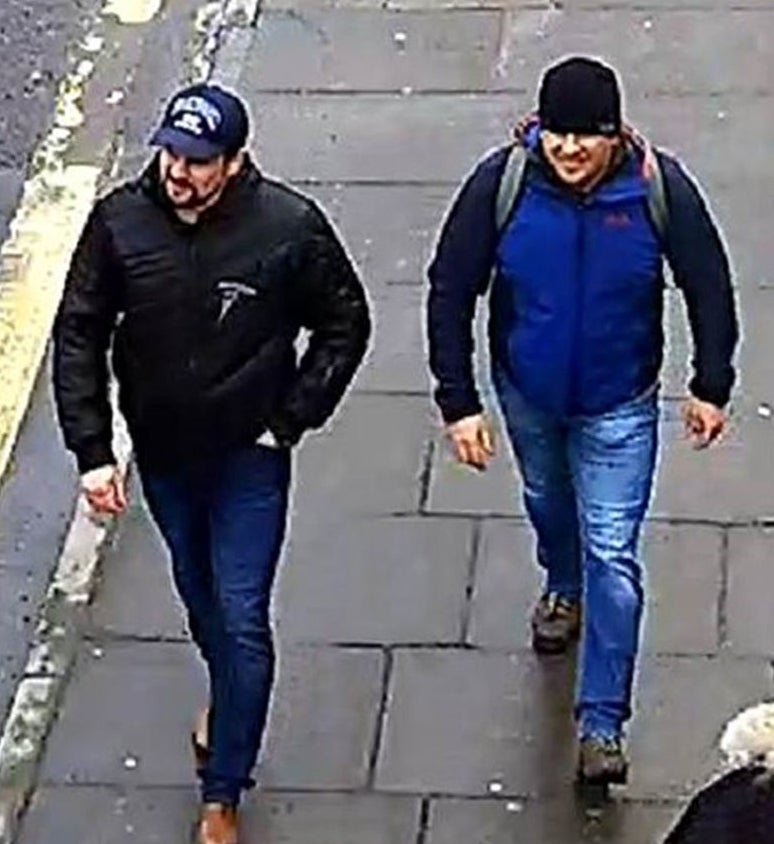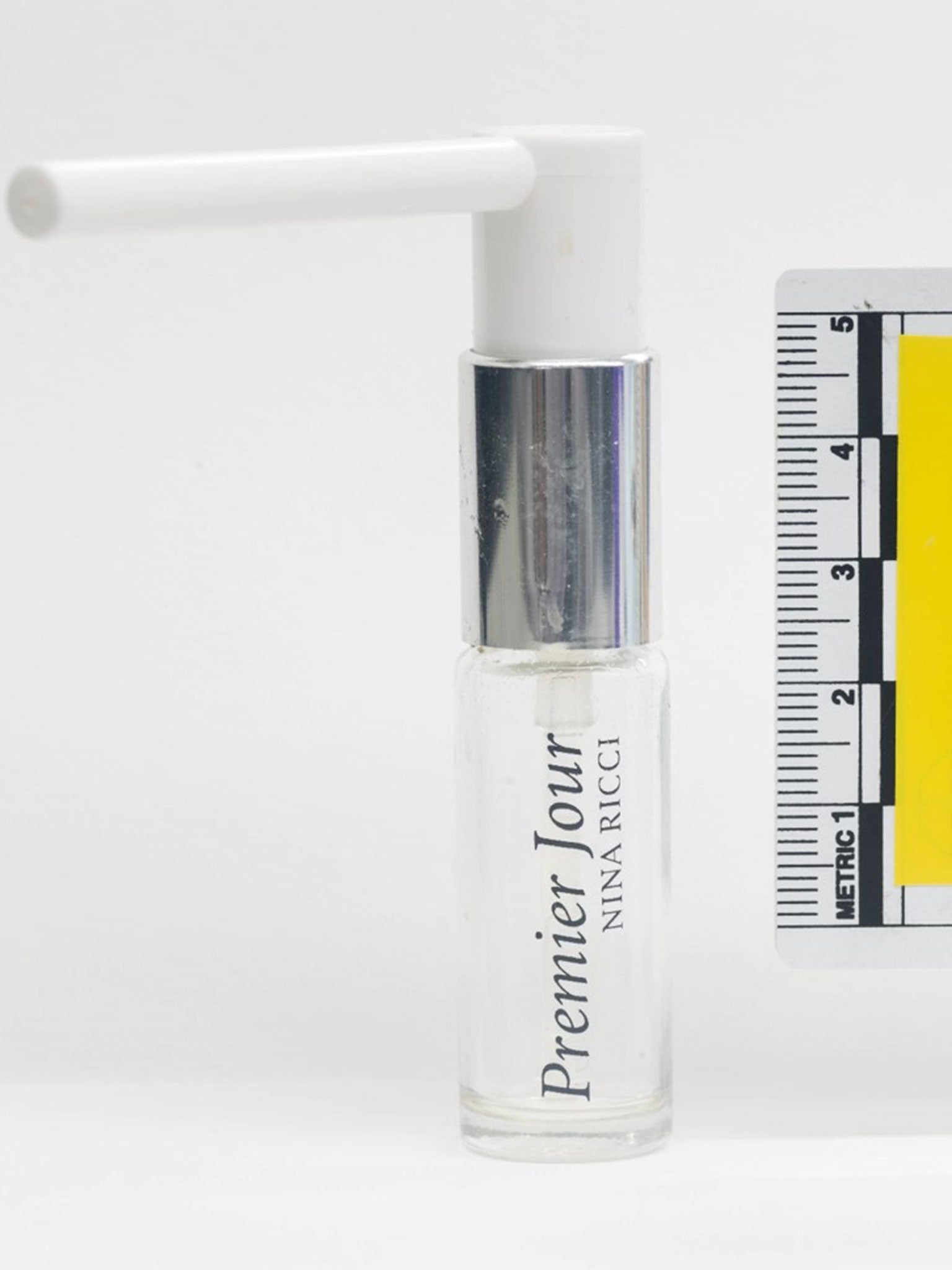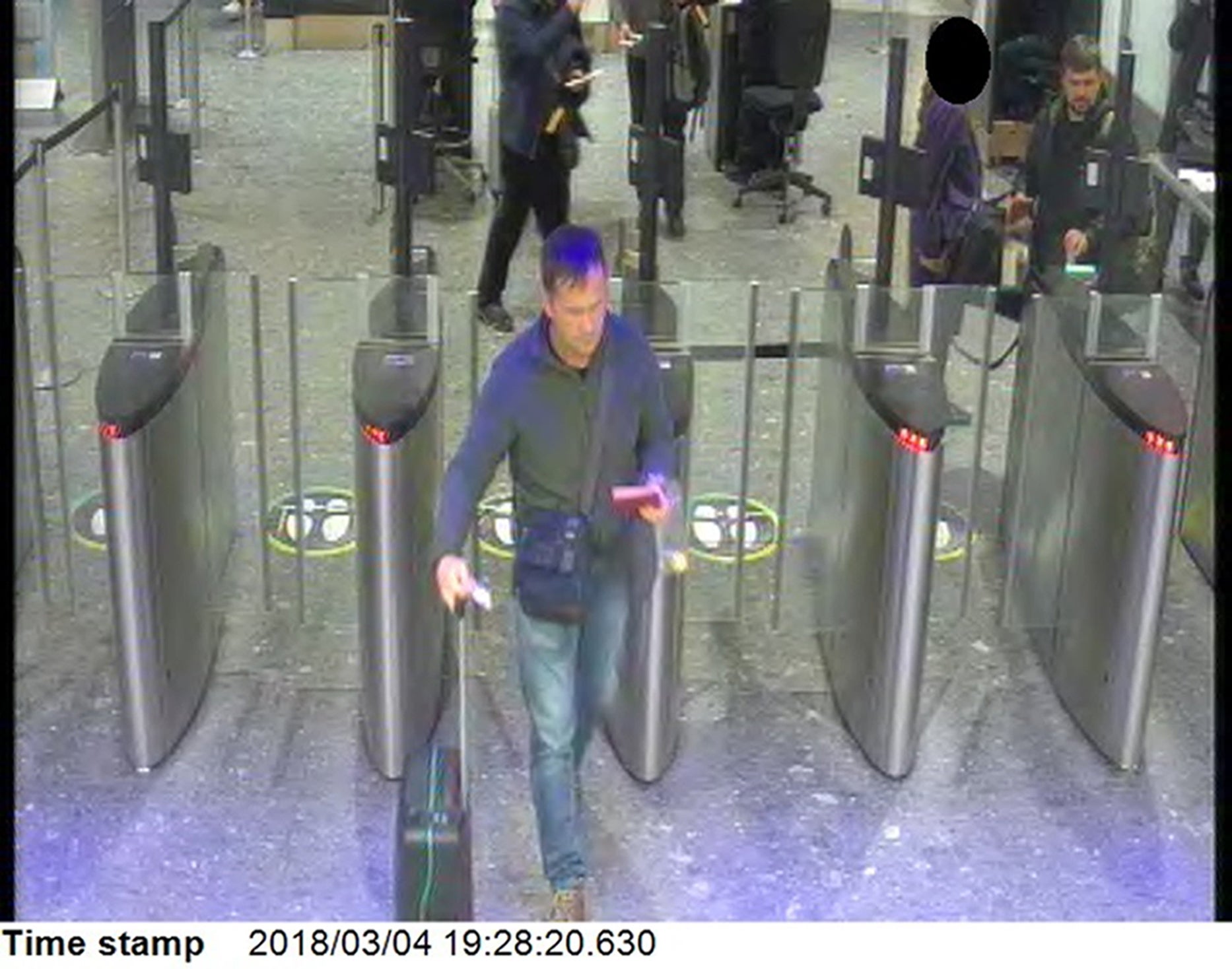Salisbury attack: Novichok poisoning suspects named as Russian nationals 'Alexander Petrov' and 'Ruslan Boshirov'
'Clearly this was assassination attempt carried out by people involved in this tradecraft,' says counterterror chief
Two Russian nationals have been charged with carrying out the nerve agent attack on Sergei and Yulia Skripal in Salisbury.
British security services said the men travelled to the UK under the names Alexander Petrov and Ruslan Boshirov, but believe they are aliases and are appealing for help uncovering their true identities.
The suspects fled back to Moscow hours after putting novichok on Mr Skripal’s front door on 4 March, possibly using the same “perfume bottle” that poisoned Dawn Sturgess and Charlie Rowley in June.
Police said the men were both using legitimate passports issued by the Russian government and have “travelled extensively” to the UK and other nations in the past.
Theresa May told the House of Commons that intelligence investigations had identified the suspects as Russian spies from the GRU intelligence service, where Mr Skripal served as a colonel before turning for MI6.
“We were right to say in March that the Russian state was responsible,” the prime minister told MPs. “The GRU is a highly disciplined organisation with a well-established chain of command, so this was not a rogue operation.
“It was almost certainly also approved outside the GRU, at a senior level of the Russian state.”
Investigators have not been able to rule out the existence of other items containing novichok in Britain, and are appealing for guests who stayed in the same London hotel as the alleged assassins to come forward after traces of the nerve agent were discovered in their room.
Assistant commissioner Neil Basu, the head of UK counterterror policing, said he supported the government’s assertion that the Russian state was culpable.

“Clearly this was assassination attempt carried out by people involved in this tradecraft,” he told journalists.
“This was a highly sophisticated attack ... the working hypothesis is that they brought the novichok into the country in the box and bottle seen [in released images].”
The Kremlin repeated denials of any involvement in the Salisbury or Amesbury poisonings following Wednesday’s announcement. A foreign ministry spokesperson claimed the suspects’ names and photos “say nothing to us”.
Maria Zakharova has criticised the UK for turning down Moscow’s request to see case files and Mr Basu confirmed counterterror police had not worked with the Russian state “at any point” or responded to their requests.
In a statement, the Russian Embassy in London accused British authorities of being unwilling to engage with them and called on the government to “give up politicised public accusations”.
The Crown Prosecution Service (CPS) is not applying to Russia for an extradition warrant because the country’s constitution does not permit the extradition of its own nationals.
Instead, European arrest warrants and Interpol red notices have been issued, meaning the suspects can be arrested if they leave Russia.
Sue Hemming, director of legal services at the CPS, said the men had been charged with conspiracy to murder Mr Skripal and the attempted murder of the former Russian double agent, his daughter and police officer Nick Bailey, who fell ill after visiting the house.
The men have also been charged with use and possession of novichok contrary to the Chemical Weapons Act and causing grievous bodily harm with intent to Ms Skripal and Mr Bailey.
“Prosecutors have concluded that there is sufficient evidence to provide a realistic prospect of conviction,” Ms Hemming said.
But Mr Basu conceded that the “brutal truth” was that if the suspects do not enter an allied country and get caught, the UK will be powerless to being the suspects to trial, mirroring thwarted efforts to prosecute those responsible for assassinating Russian dissident Alexander Litvinenko.
“This is not the end of our inquiry,” he added. “Loyalties change, people change and we won’t stop until we get justice.”
The men have not yet been charged with offences in relation to the poisoning of Mr Rowley and Ms Sturgess, who died days after being exposed to novichok on 30 June.
Police said Mr Rowley picked up the weapon in the belief it was a perfume bottle, although he does not remember exactly where he found it.
Mr Basu said the bottle was a counterfeit Nina Ricci Premier Jour perfume that had been “specially adapted” to contain novichok and distribute it through a pump, adding: “We don’t yet know where the suspects disposed of the novichok they used to attack the door, where Dawn and Charlie got the bottle that poisoned them, or if it is the same bottle used in both poisonings.”
Investigators say the box may have been moved after it was recklessly disposed of by the assassins and ended up in a charity bin.
The Skripals were initially critically ill but later discharged from hospital, while Mr Rowley was readmitted to Salisbury District Hospital two weeks ago.
He told ITV News earlier this week that his eyesight had “improved”, but not yet fully restored and that there was still “a bit of meningitis in the system”.

The charges came less than 24 hours after the Organisation for the Prohibition of Chemical Weapons (OPCW) confirmed the substance in Amesbury was the same type of novichok as the Salisbury attack.
“The toxic chemical compound displays the same toxic properties of a nerve agent,” investigators concluded.
“It is also the same toxic chemical that was found in the biomedical and environmental samples relating to the poisoning of Mr Skripal, Ms Skripal, and Mr Bailey on 4 March in Salisbury.”
Police are appealing for anyone who recognises the box it was contained in or saw the suspects between 2 and 4 March to come forward.
They arrived at London Gatwick airport on a flight from Moscow and travelled by train and public transport to the City Stay Hotel in Bow Road, east London.
On 3 March, the suspects travelled by train to Salisbury on what is thought to have been a reconnaissance mission and returned to London that evening.
The following day, CCTV showed the suspects retracing their steps to the Wiltshire city, but this time carrying a grey rucksack.
Mr Basu said they were caught on CCTV on Wilton Road, Salisbury, “moments before the attack” at 11.58am.
The men allegedly distributed the novichok on Mr Skripal’s front door and he and his daughter fell critically ill on a bench in the town centre at 4.15pm.

By that time, the Russians had already boarded a train from Salisbury to return to London and they caught a flight back to Moscow from Heathrow at 10.30pm that night.
Investigators later found traces of novichok in their room at the City Stay Hotel.
They said the amount was too low to present a health risk but are appealing for any hotel guests who stayed there between 4 March and 4 May to contact investigators.
Public Health England said there had been no other reports of illness and that the risk to people who travelled in the same areas or public transport as the suspects was low.
“Anyone exposed to novichok will have experienced symptoms within 12 hours of exposure,” Mr Basu added.
“Despite the meticulous and painstaking searches, and although unlikely, it is impossible to guarantee that there are no other materials present in the Salisbury area.”
Police repeated advice from Public Health England that people should not pick up items which do not belong to them in the Salisbury and Amesbury areas.
Sadiq Khan, the mayor of London, said: “I am reassured by public health experts that there is no risk to health for passengers and staff on the transport network from this case.”
Anyone with information is asked to contact the investigation team in confidence on 0800 789 321 or email Salisbury2018@met.police.uk.
Bookmark popover
Removed from bookmarks